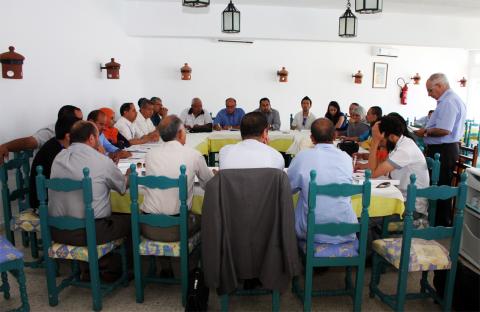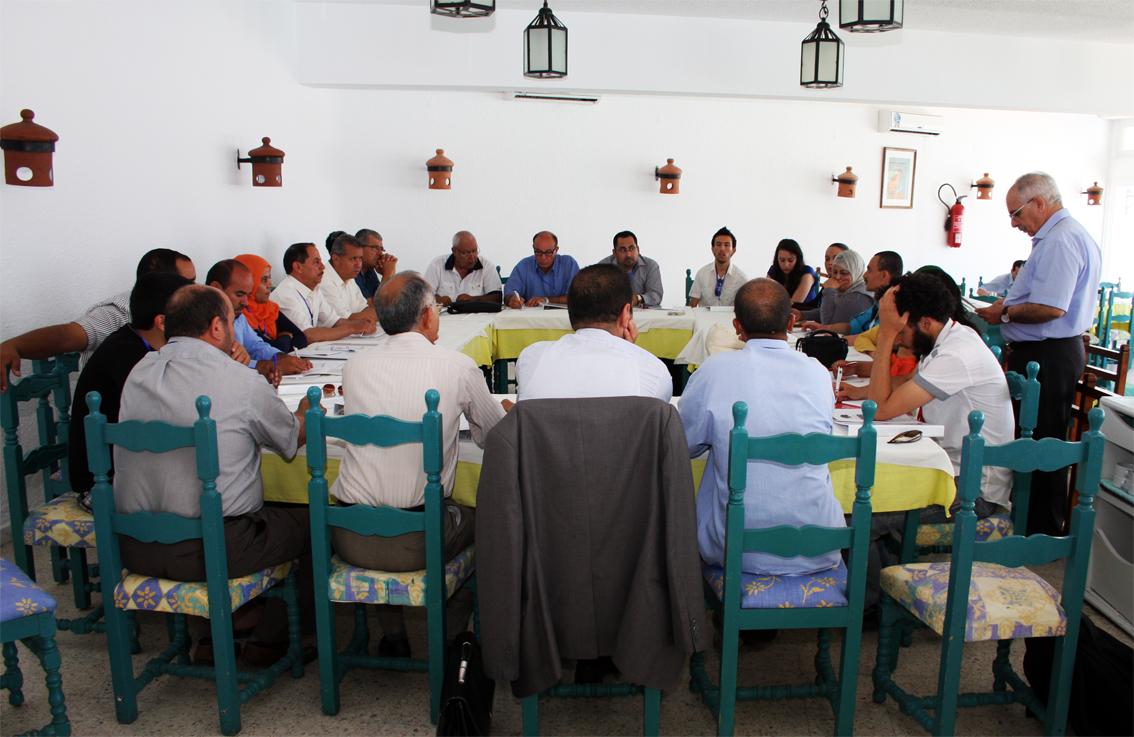
The setting was the soft sand, clear blue skies, and sunshine of the Kerkennah Islands off the southern coast of Tunisia – but instead of enjoying a well-earned rest, citizens from all over the 24 governorates of Tunisia gathered from 11-13 June for a deliberation on four key health sector challenges emerging from the recent regional population consultations on health.
Approximately 100 people selected by lottery from each of the governorates were divided into groups of 25 citizens each to form a ‘citizens’ jury’ with the task of pronouncing a verdict on specific questions around one of the four assigned topics:
1. Solidarity and health system financing mechanisms
2. Neighbourhood health services and coordination and integration of care
3. Health promotion and health culture
4. Confidence and revitalisation of the health sector
This event was a culmination of efforts to truly listen to the population under the societal dialogue programme supported by the Ministry of Health, WHO, and EU.
In 2013, health professionals, vulnerable population groups, and other ordinary citizens actively participated in focus group discussions on how they perceive and experience their health care. Their inputs contributed to a Health Sector Situation Analysis Report in early 2014 which was also based on a thorough literature review. Next, ‘Citizens’ Meetings on Health’ were organized in each governorate where further input was gathered on the key challenges in the health sector as well as people’s values and attitudes towards sector reforms. On this occasion, citizens also shared their views on how health services could be improved.
Faical Ben Salah, President of the Steering Committee on Societal Dialogue was amazed by the population’s enthusiasm: ‘The dynamic created by this societal dialogue programme has gone well beyond our expectations – we are hearing views from cross-sections of the population, from coastal fisherman to single mothers to schoolteachers to health professionals.’
Once the principal challenges facing Tunisia’s health system were clear, it was imperative to develop realistic strategic directions to meet those challenges. The citizens’ jury has contributed immensely to this process, by outlining the following broad areas as the citizens’ official recommendations to the government:
– Increase solidarity, equity and efficiency by merging the three national health insurance options offered and by integrating the schemes currently targeting the poor and vulnerable
– Strengthen the public sector as a cornerstone of health reforms, promote excellence and innovation in the public sector, develop transparency and accountability mechanisms
– Focus on community-based activities for health promotion and prevention, strengthen inter-sectorial actions
– Bring health services closer to the citizen and develop mechanisms for integration and coordination. For instance, reorganize referral modalities and establish primary health care teams for successful chronic disease management.
Strengthening of governance and health financing underpinned most citizens’ jury recommendations and should become the cornerstones of health system reform.
Deliberations highlighted a lack of trust in the health system and deep-rooted misunderstandings between professionals, ordinary citizens and the government administration. The dialogue initiated at the citizens’ jury contributed to a sort of “reconciliation” and needs to be continued in order to develop a common vision of health system development which all Tunisians truly own.
One of the citizens participating in the citizens’ jury stated ‘We Tunisian citizens hope and demand that concrete actions and actual implementation [will take place] beyond the promises made’.
The citizens’ jury recommendations will be detailed in a Citizens’ Report to be presented and discussed at the National Health Conference 3-5 September 2014. At that time, final decisions will be made on the strategic direction for the National Health Sector Vision and Policy.
